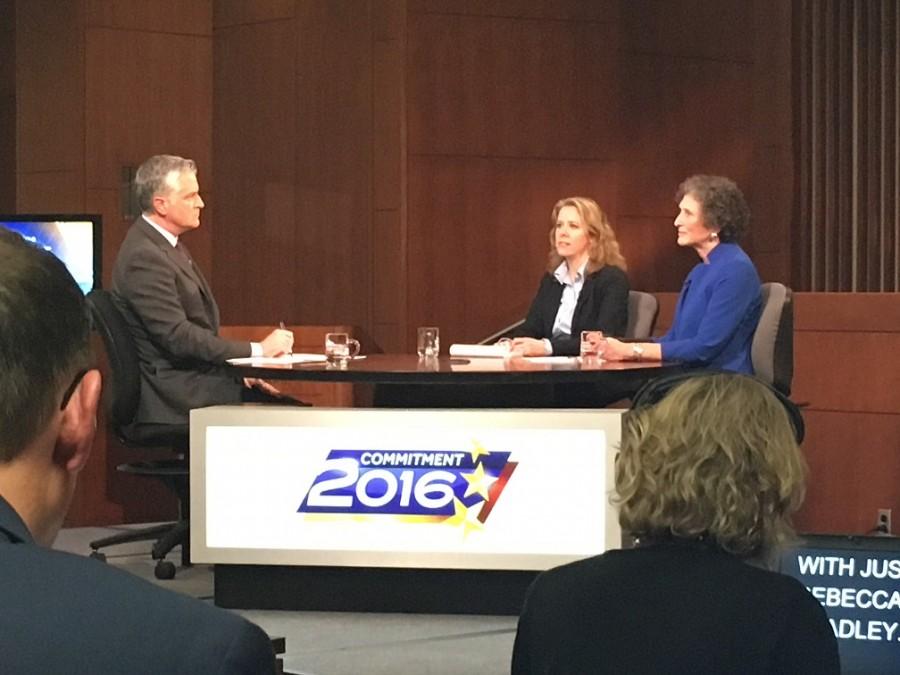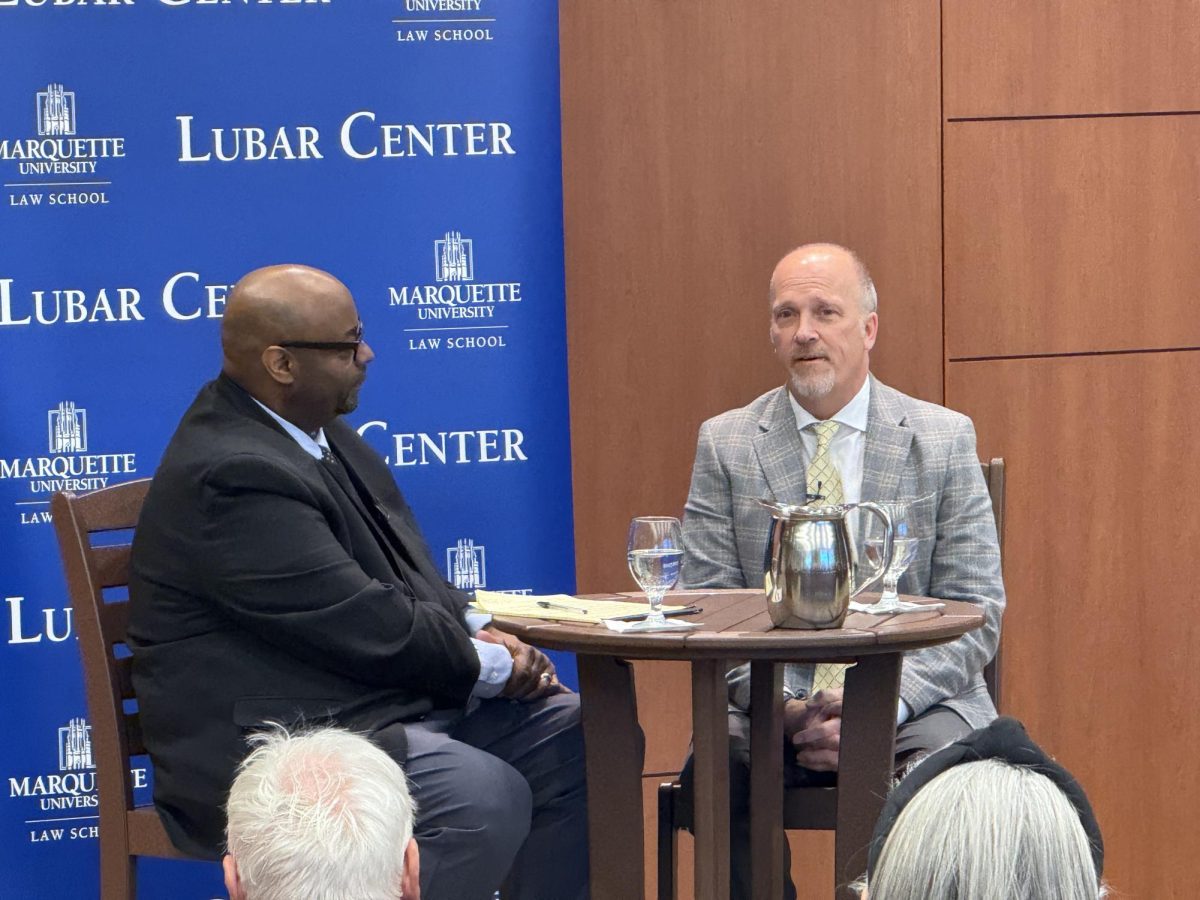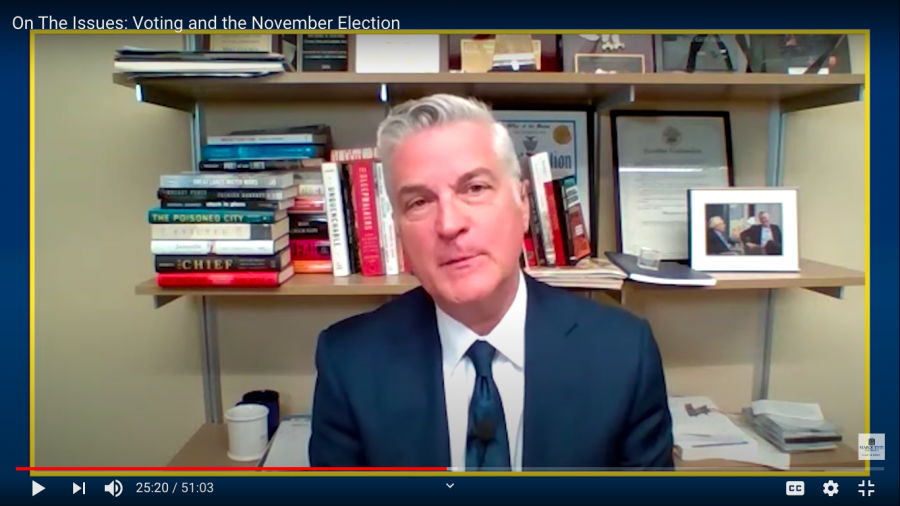Wisconsin Supreme Court Justice Rebecca Bradley and her opponent JoAnne Kloppenburg debated this week in the Marquette Law School, providing a chance for Bradley to give a spoken comment on her recent controversies.
The candidates briefly discussed their judicial philosophies but most of the debate was dedicated to controversial opinion pieces Bradley wrote in college and accusing each other of partisanship.
While she was a Marquette student in 1992, Bradley wrote pieces in The Marquette Tribune where she criticized gays and former President Bill Clinton, in addition to comparing abortion to slavery and the Holocaust.
“Either you condone drug use, homosexuality, AIDS-producing sex, adultery and murder and are therefore a bad person, or you didn’t know that (Clinton) supports abortion on demand and socialism, which means you are dumb,” Bradley said in one of the pieces.
The pieces were dug up last week, around a month before voters decide between Bradley and Kloppenburg. Bradley declined to speak and instead provided an apology statement.
When the writings came up at the debate, Bradley reiterated her apology statement said she immediately realized the impact of her comments after she received letters from gay students at Marquette.
“The process of change started after I wrote those words … I immediately realized how hurtful my comments were and how wrong they were,” Bradley said. “I’m not the type of person who wants to hurt somebody.”
Bradley emphasized the amount of time that has passed since the pieces were published.
“When I was 21 at the age that those comments were written, I was in graduate school doing things like interning at the United Nations Security Council,” Kloppenburg said. “I have been consistent throughout my career. And my opponent’s record doesn’t show much evidence of the change she says she’s had in her core values and beliefs.”
Bradley reiterated that she no longer holds the views expressed in her pieces.
“For a judge to think people can’t change, I find that very disturbing,” Bradley said. Kloppenburg criticized the pieces after they were made public.
Hours before the debate started, Marquette College Democrats released a statement and petition for Marquette to disassociate itself from Bradley. When asked last week if the university could provide a comment on Bradley’s writings, University Spokesman Chris Jenkins declined because of policy that doesn’t allow Marquette to comment on political races or candidates.
College Democrats said it sees that silence as a form of indifference. Several of its members protested outside the Law School before the debate started.
Zion Little, vice chair of College Democrats and freshman in the College of Arts & Sciences said, “we want the university to reiterate that we are an open and inclusive campus no matter who you are or who you love.”
Bradley is also facing another controversy. A March 10 Milwaukee Journal-Sentinel report found that when she was a private attorney she represented someone she was having an extramarital affair with.
Bradley described the Journal-Sentinel article as a “vile piece of garbage” and asked Kloppenburg to disavow it. Kloppenburg declined to do so.
“Any article reporting that has facts and reports the choices I made, words I said, judgment I exercised, is fair game,” Kloppenburg said.
Bradley said she identifies with late United States Supreme Court Justice Antonin Scalia.
“He always followed the law even if he personally disagreed with the law or outcome of the case,” Bradley said about Scalia.
Kloppenburg described Scalia, who often leaned conservative, as extreme and said the key to their state supreme court race is keeping partisan politics out of it. She noted how Bradley was appointed by Republican Gov. Scott Walker to her current role, which was allowed because the previous justice passed away before he could finish his term.
Kloppenburg emphasized how Bradley receives support from conservative groups.
“I have support on a bipartisan basis,” Bradley said. “I am happy to speak to any organization that invites me.”











